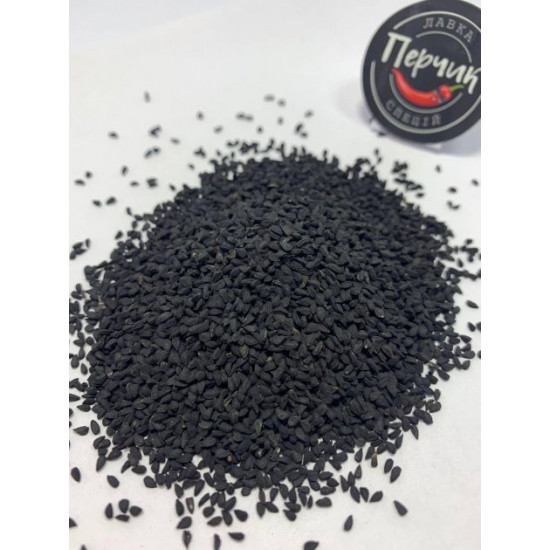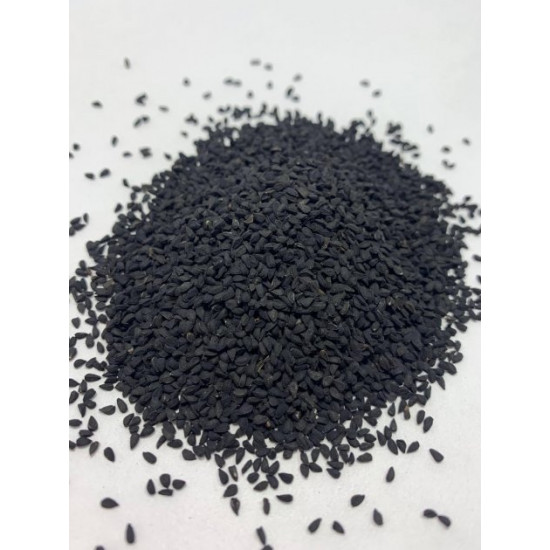

--734 %


Black cumin (nigella, kalindzhi, nigella) 1 kg
$89.21
$744.00
Tax $744.00
- Stock: In Stock
- Model: 340080271
0% Customers recommend this product
-
5 Awesome0%
-
4 Great0%
-
3 Average0%
-
2 Bad0%
-
1 Poor0%
Reviews Over Black cumin (nigella, kalindzhi, nigella) 1 kg
- (0)
Total Reviews (0)
click here write review to add review for this product.
Report this review.
Description
Kalinji, nigella, black cumin, nigella sativum or Roman coriander - all these names refer to the teardrop-shaped black seeds of the ranunculaceae family. The British call this spice “the devil in the thicket”. It is popularly known as “the hair of Venus.” There is another French name: quatre epices (four spices) since in Kalindzhi seeds the French at one time felt not only the taste of pepper, but also three aromas, including nutmeg. "Kalindzhi" is used in cooking when preparing the first and second dishes, baked goods, salads. The seeds are used as a spice when pickling cucumbers, watermelons, and sauerkraut. In ancient times, nigella seeds and seed oil were used as a powerful cleansing and rejuvenating agent. Nigella has been used for medicinal purposes for centuries, both the leaves and seed oil in Asia, the Middle East and Africa. Traditionally used for a variety of treatments related to problems of the respiratory system, stomach, intestines, kidneys, liver, cardiovascular system, increasing immunity and improving the general condition of the body. In folk medicine, tea from nigella seeds is drunk as a diuretic and choleretic, a mild laxative and a stomach remedy, as well as for skin diseases. In cooking, nigella seeds are used in quite a variety of ways. They are added to meat and fish dishes, as well as vegetables and beans. These black seeds are used to flavor bread products, pastries, crispbreads and pretzels, and they are also added to batters, jellies and mousses. Cooks also recommend using nigella seeds when sauerkraut, pickling cucumbers and watermelons. A small pinch of these fried seeds will add an extraordinary aroma to stewed cabbage and zucchini, eggplant or pumpkin. In the East, these seeds are sprinkled on baked goods, just like we use poppy seeds. In Kyrgyzstan, tea and cakes are flavored with nigella, and in Ukraine - cold soup with colostrum. To improve the aroma of the seeds, it is advised to roast them for a few minutes in a dry frying pan. Black cumin is used to treat a number of diseases and conditions, including gastrointestinal disorders, hypertension, diabetes, inflammation, cough, bronchitis, headache, eczema, fever, dizziness and influenza. Studies have been conducted on its immunoprotective and anticancer effects; anti-inflammatory, analgesic and antioxidant properties; and antidiabetic, antihypertensive, antimicrobial and antiparasitic activities. The seeds and its components are characterized by the absence of adverse reactions for most people. Production - Ukraine Shelf life, years - 2 Nutritional value, g/100g: proteins - 16, fats - 15, carbohydrates - 52 Energy value, kcal/100gram - 333; Ingredients: black cumin seeds (Nigellas, Kalinjis), have a matte black color, triangular shape. Contains essential oil 0.5-1.4% and fatty oil up to 40%
Specifications
| Characteristics |



























































